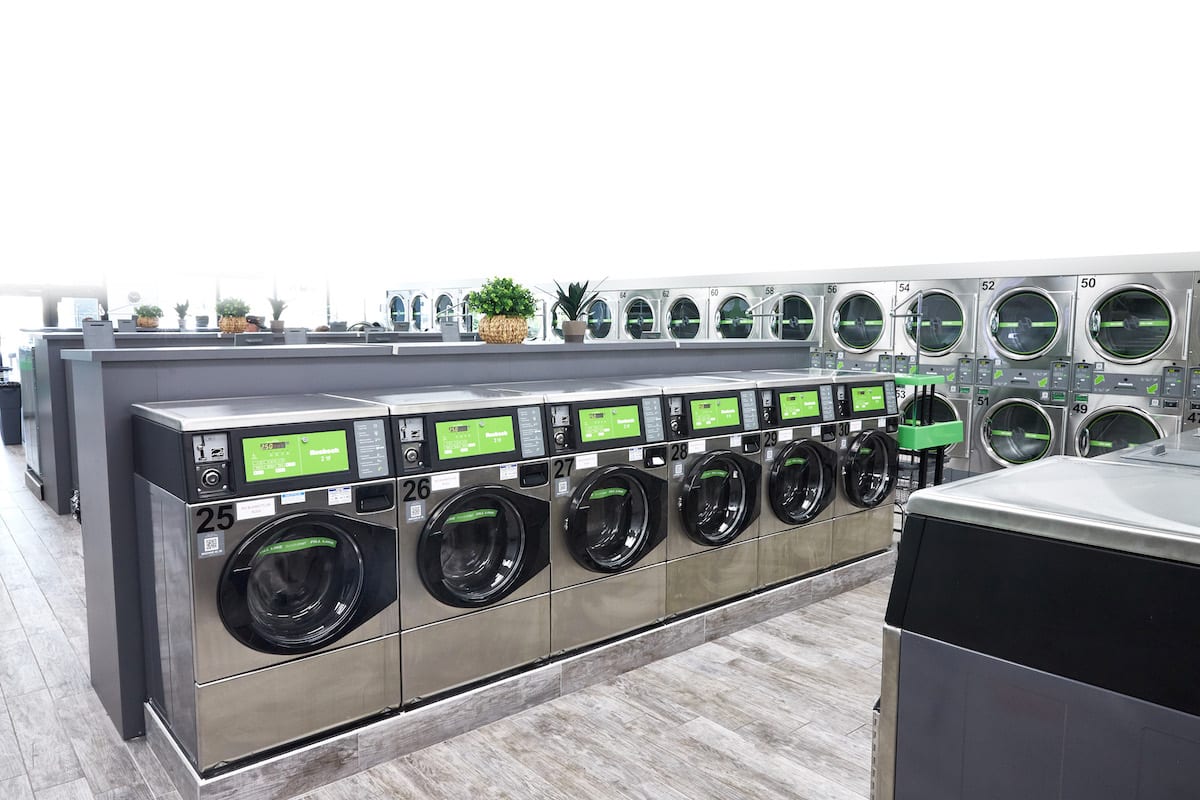
The Ins And Outs of Laundromat Financing
Congratulations—you’ve made the decision to open your own laundromat! If you’re feeling overwhelmed, you’re not alone. Starting your own venture, especially a cash business like this, can be intimidating. We’re here to walk you through your next step: obtaining laundromat
financing.
When we say financing, we mean using someone else’s money (typically a bank, credit union or manufacturer-based finance company) to fund a project. You’ll need to show your dedication to the project by adding some of your own money or property. Financing is a great way to hit the ground running, if you don’t have the initial funds required to launch a business. In the laundry industry, this typically refers to purchasing equipment, with machines ranging anywhere from $300 to over $10,000 each.
We spoke with finance expert Jeff Harvey to explain the ins and outs of laundromat financing, so you can make a more informed decision on how you want to fund your business.
What Is Financing?
To put it simply, financing is a loan to provide money needed upfront, before you begin your project. You’re using a loan to purchase something and will pay back whoever loaned you the money over a set period of time. Opening a laundromat can be fairly expensive, and financing allows investors to get into the business without having to come up with all the funds themselves right away.
How Does Laundromat Financing Work?
When you decide which lender you want to use, you’ll bring them your proposed project plan and your financial documentation. The lender will look at your credit score, credit history, comparable borrowing circumstances (if you’ve borrowed a similar amount of money before and paid it back), payment history, liquidity, reserves, net worth and your debt-to-income ratio to determine how much they think you can realistically afford.
That’s called your pre-approval amount.
Once you get your pre-approval amount, shop around to create a more complete plan of what you want to do. This includes what types of machines you want to purchase, how many and if you need any ancillary equipment such as a coin machine, vending machines and bill changers. This part may or may not include shopping for a location, too.
After you have that all figured out, you’ll take your final proposal to your lender, who will then hopefully approve your project, and you’ll get the funds to begin making purchases for your business.
What Are Some of the Obstacles People Face with Laundromat Financing?
Harvey said the first obstacle people typically face when looking into laundromat loans is not having a full understanding of where to go. Most are familiar with banks, but they don’t always realize those aren’t the only options out there. Banks don’t know as much about cash businesses, but are still a good option, Harvey said. Manufacturer-based financing that specializes in your industry is also an option as it provides a new perspective and can take a better look at your financial situation and assess your business.
Another barrier people face is not having their financial information available, for example, tax returns, bank statements, personal finance statements or credit applications. Being organized and ready to go is necessary to get the ball rolling, and some are just not prepared or don’t know what to bring.
The last common barrier is exactly what you’d expect—past credit or other financial issues. Harvey said while those situations can present some obstacles, you’d be surprised how often lenders are willing to work with borrowers with past issues. Harvey recommended still applying for laundromat financing but come to the table prepared to discuss with the lender what happened, how you overcame it and how you’re better off now.
Is It Ever Not Beneficial to Finance?
When you’re opening a laundromat, the most common expense financed is the cost of new equipment. Harvey said in this case, it’s almost never NOT beneficial to finance. Especially for new laundromats because there are so many large up-front costs required to get the business going. He added borrowing from a manufacturer-based lender can provide an added benefit of industry knowledge and even insight into finding a location for your store. The only time Harvey said it might not be beneficial to finance is if you’re buying an existing laundromat with old equipment because you likely won’t be making a great return on investment.
What Happens If I Can’t Pay Back My Laundromat Loans?
What happens is the same as with most lenders—you’re personally liable for the laundromat loan and if you don’t pay, lenders can file judgments against you to try and obtain that money you promised. Harvey added this could be another benefit of working with a manufacturer- based lender, though, that if you find the right lender to partner with who understands the industry, there could be more flexibility in terms of repayment options such as lowering payment amounts for a period of time.
What Else Should I Know About Laundromat Financing?
Some people tend to view laundromat financing as intimidating or cumbersome, Harvey said. However, lenders are working hard to keep making the process easier. If you’re ready to improve your store, reach out today to learn more about financing with Huebsch!



